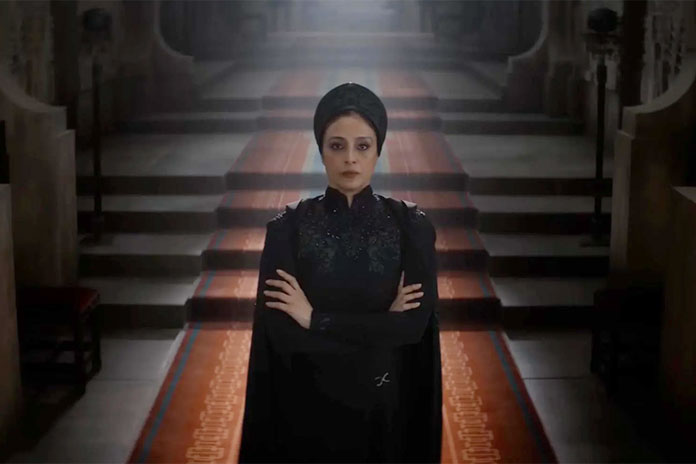
Dune: Prophecy Explores Complex Morality of Harkonnens and Atreides
As the anticipation builds for the upcoming HBO prequel series Dune: Prophecy , fans of Frank Herbert's legendary universe are buzzing with excitement over the new narrative directions it promises. The show, which is set to debut on November 17, dives deep into the rich lore of the Dune saga, challenging the simplistic notions of good versus evil that many may have developed from the recent films. Jessica Barden, who portrays the young Valya Harkonnen, notes that audiences often arrive with preconceived notions about the Harkonnens being purely villainous. She urges viewers to reconsider, suggesting that Valya is not just a villain but rather a complex character with her own motivations and vulnerabilities.
Also Read:- Valérie Plante: A Legacy of Leadership in Montreal
- Jelly Roll’s Inspiring Journey: Losing 100 Pounds and Transforming His Life
This nuanced exploration is a cornerstone of Dune: Prophecy , which takes place 10,000 years before the original Dune narrative. The show focuses on the rise of the Bene Gesserit order, with Valya and her sister Tula at its forefront. Barden captures this complexity beautifully, describing Valya as "really vulnerable and really determined," a character driven by a desire for revenge and a thirst for power. This moral ambiguity is a theme that resonates deeply within Herbert's works, and it is something that the cast members are eager to convey.
Emily Watson, who plays the adult Valya, echoes Barden's sentiments, characterizing the Harkonnens as a deeply flawed family mired in trauma and complicated relationships. In her view, the characters are not villains but individuals who believe they possess the clarity needed to navigate a chaotic universe. Watson emphasizes that these characters see themselves as the heroes of their own stories, convinced that they alone can chart a path forward for humanity. This perspective invites viewers to engage with the story on a deeper level, reflecting on the blurred lines between right and wrong.
The show's creators, including showrunner Alison Schapker, aim to honor the intricate tapestry of Herbert's world while also allowing for fresh storytelling. Schapker is clear that while Dune: Prophecy is inspired by the books, it has the freedom to explore new narrative territories. The production has garnered support from Denis Villeneuve, who directed the recent films, allowing the creative team to expand upon established lore while remaining faithful to the core themes of the Dune universe.
As viewers prepare to embark on this journey into the past of Arrakis, they can expect a richly detailed narrative that honors the complexity of its characters and the moral dilemmas they face. With a talented ensemble cast and an ambitious storyline, Dune: Prophecy is set to redefine how we perceive the Harkonnens and Atreides. The show promises to draw us into a world of intrigue, power struggles, and the dark shades of gray that lie within every character, compelling us to reconsider our assumptions about what it means to be a hero or a villain in a universe where morality is rarely black and white.
Read More:

0 Comments